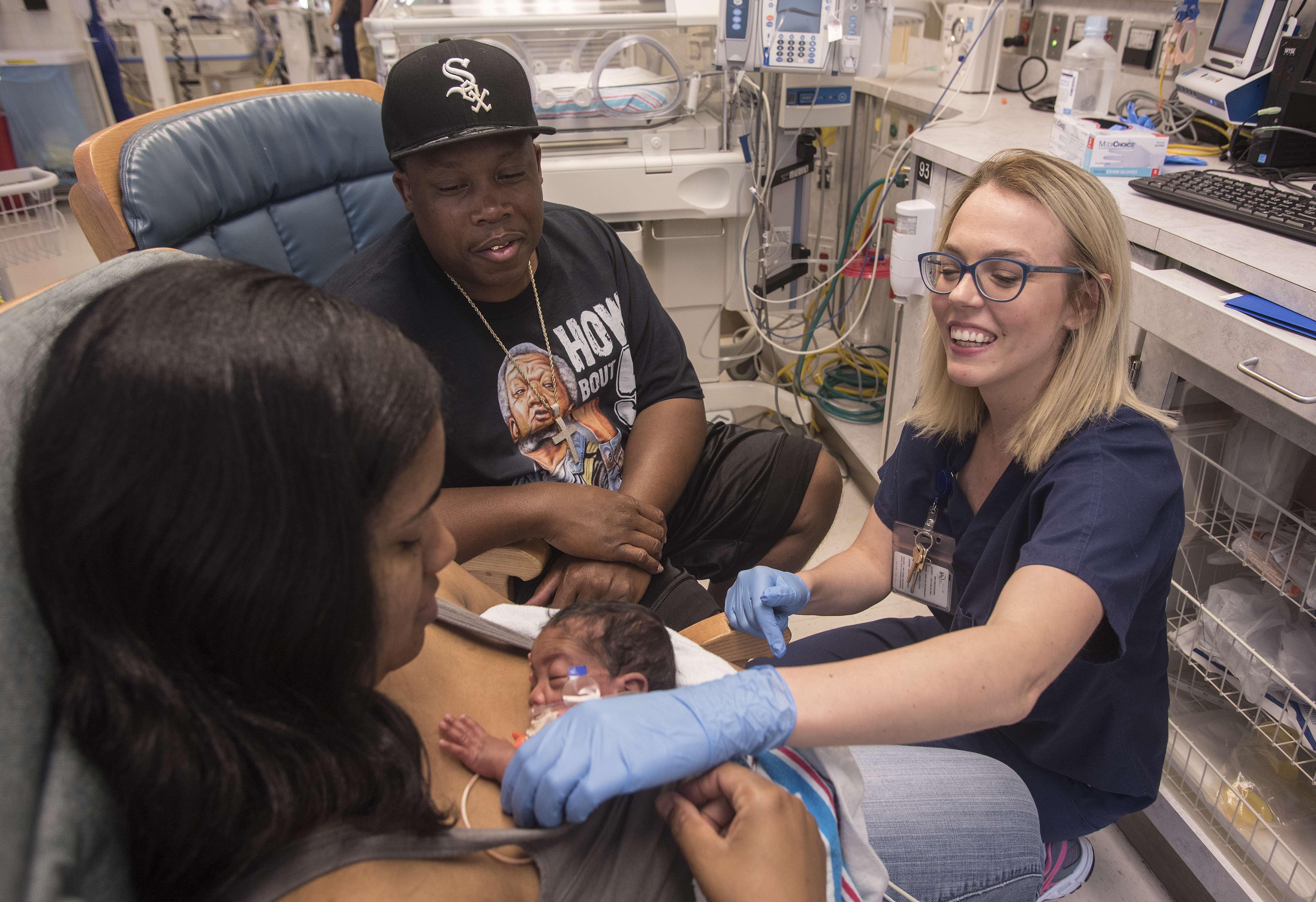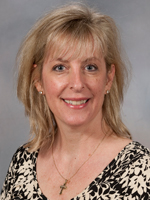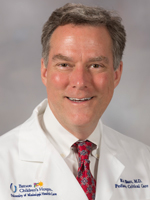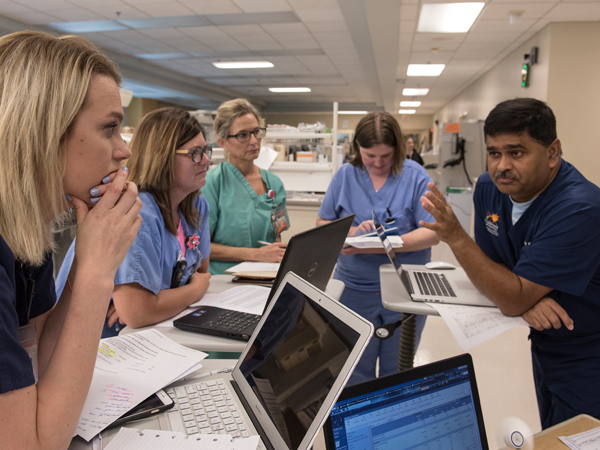Advanced nursing programs meet provider shortage head-on

Published in News Stories on March 30, 2017
Emily Jones knew since before she started nursing school that she wanted to take care of babies.
“In my heart, that had never been a question,” said Jones, a Madison resident and patient transport nurse at Wiser Hospital for Women and Infants and Batson Children's Hospital. “As soon as I graduated from nursing school, I wanted to start in the NICU and work with the babies. Once I started working there, I was hungry to know more.”
Now nurses who have a heart for the most vulnerable patients and are “hungry to know more” once again have access to advanced nursing education within the University of Mississippi Medical Center. The University of Mississippi School of Nursing has added pediatric nurse practitioner and neonatal nurse practitioner to the list of Master of Science in Nursing tracks available to prospective students.

Norwood
Dr. Anne Norwood, a Madison resident, professor of nursing and director of school-based health clinics, is also the director of the two master's tracks. She said the Medical Center at one time had a neonatal nurse practitioner program, but it ended when interest declined and the program was no longer cost effective.
Today, however, hospitals are facing a national shortage of neonatal nurse practitioners. A study published in the Journal of Professional Nursing found that about a quarter of neonatal nurse practitioner training programs had closed since the early 2010s. Many cited a lack of access to clinical training opportunities, hands-on practice in a hospital, as one of the reasons for closing.
Having the state's only Level IV neonatal facility, providing the highest level of care and services to all neonates in Mississippi and surrounding states, the Medical Center offers ample opportunity for students to gain experience with actual patients.
Despite the number of programs that have closed, the demand for nurse practitioners is not declining. According to the March of Dimes, Mississippi has the highest rate of preterm births in the nation at 13 percent. This makes the need for neonatal and pediatric nurse practitioners in the state even greater.
“We saw a need and wanted to help fulfill that need within our own hospital,” Norwood said. “In 2015, we took our first class. They will graduate in August.”

Barr
The programs began at the request of Dr. Rick Barr, Suzan B. Thames Professor and chair of pediatrics.
“It's not only a need in our NICU, it's a need statewide,” Barr said. “There were no neonatal nurse practitioner programs in the entire state.”
He said that students left UMMC to attend both pediatric and neonatal programs in neighboring states, “often at significant personal expense, travel and disruption of their schedules. If they went out of state to get their training, we weren't as likely to get them back.”
Norwood said that the nurse practitioners at the Medical Center not only assess babies and children, but they can also diagnose, treat and order medications, labs and other diagnostic studies.
“They collaborate with the physicians, the neonatologists, to provide health care to this specific population,” she said.
“We have a 96-bed NICU at Batson,” Barr said. “There are times when we have every bed filled, 96 patients and looking for room elsewhere. It's a busy unit, and we are heavily dependent on nurse practitioners to take care of those patients.”
Tanya Willis of Brandon, instructor of neonatology and lead nurse practitioner in the NICU, is head faculty of the neonatal track. With the help of Jennifer Moffit, pediatric nurse practitioner at Wiser, she coordinates classwork with Norwood.
Willis said all lectures are by physicians and subspecialists in the Medical Center.

Taking part in rounds with neonatologists are, from left, Jones; Tanya Willis; Ann Adams, nursing supervisor; Dr. Amanda Capino, clinical assistant professor of pharmacy; and Dr. Abhay Bhatt, professor of neonatology.
“We really draw a lot from our ancillary services so the students get the best information from the best source,” she said. “We pull in urologists, cardiologists and nurse practitioners who specialize in other areas. The neonatal content is taught by our attending physicians and our fellows.”
Chris Collado, director of advanced practice providers and Batson's lead nurse practitioner, is head faculty for the pediatric track. The Jackson resident said the recurring theme with students entering the pediatric program was a desire to increase access to care into certain parts of Mississippi.
“I was really impressed with this group's motivation,” he said. “They decided to step out of their comfort zones and pursue advanced practice for nursing. They are excellent students. Their personal characteristics, their professionalism and, I think, the training that they are getting here are going to make them stand apart from other programs where there's a much stronger online component and less clinical opportunity.”
Barr agrees the quality of the program is evident.
“I think it's an excellent program for several reasons,” he said. “It meets the need. We have an excellent nursing school with strong leadership. We have exemplary pediatric nursing faculty who are helping teach this program. We have a great team.”
Shortly after Jones moved from the NICU to transport two years ago, she heard from Willis that the new program would be starting soon.
“Tanya had let me know because I had been talking to her about wanting to go back to school already and trying to see what the options were,” she said. “There's no better way to learn than when you work with and can have a close relationship with your instructors, because you know them. So I held out for that.”
When she graduates in August, Jones plans to stay on in the NICU.
“It's a family,” she said. “I see these people every single day that I'm not at my own home. It's my second home. It's a place where I feel comfortable, where I feel I can be challenged and where I feel I can grow. I couldn't imagine being anywhere else.”

Current registered nurses holding Bachelor of Science in Nursing degrees who are interested in obtaining advanced nursing education in one of the eight Master of Science in Nursing tracks may download a quick-start guide here for more information.


